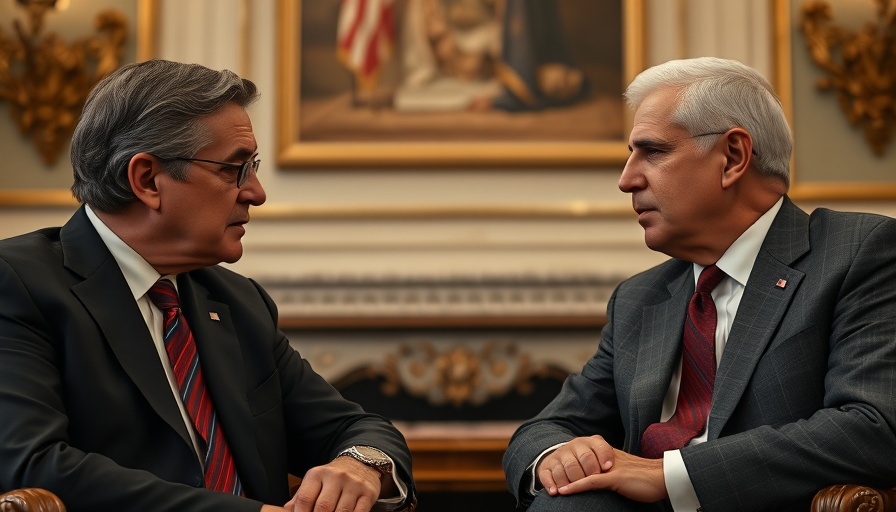
The Global Economic Equilibrium in Jeopardy: Trump-Zelenskiy Clash
In a shocking display that sent ripples through the global financial landscape, the highly anticipated meeting between U.S. President Donald Trump and Ukrainian President Volodymyr Zelenskiy turned confrontational last Friday. While the meeting aimed to solidify U.S.-Ukrainian relations in the face of ongoing Russian aggression, the outcome was anything but productive. Instead of bolstering confidence in a potential peace agreement, the exchange ignited fears of political instability that may further deter investment, particularly among U.S. stakeholders.
Repercussions in Financial Markets
The confrontation led to an immediate and heightened sense of uncertainty across markets. Investors reacted swiftly, resulting in a flight to safe-haven assets, most notably U.S. Treasury bonds. Benchmark 10-year Treasury yields dropped to 4.229%, an indication that fears were mounting.
European stock futures plummeted, with indexes such as Germany's DAX and France's CAC40 reflecting the jittery atmosphere by falling over 1%. Similarly, the S&P 500, which had already been facing pressure from declines in consumer sentiment, registered losses after the clash became public. This transactional disturbance highlights how intertwined political rhetoric is with market movement, especially when geopolitical tensions rise. Portfolio manager Jack McIntyre of Brandywine Global summarized the atmosphere aptly: "It looked like we were moving towards progress on a peace deal... so you have to price in a little bit more uncertainty."
A Market on Edge
Recent trends in the stock market had already indicated a volatile month. February saw significant dips for major indices, with the S&P 500 losing over 2% and technology stocks floundering previously buoyant market positions. The intensity of the meeting between Trump and Zelenskiy only exacerbated concerns about the overall stability of equities in a fluctuating economic landscape.
Could Positive Results Arise from Chaos?
Yet, analysts are noting that the market's initial panic may not lead to prolonged downturns. While some view the exchange as a pivotal moment signaling a breakdown in negotiations, others emphasize the potential for reconciliation. Keith Lerner, co-chief investment officer at Truist Advisory Services, argued that the exchange should be taken as political theater rather than a derailment of negotiations. As investors recalibrate their strategies, they might find value in sectors that have recently lagged behind, creating potential growth opportunities.
Broader Context of Economic Development and Job Creation
In light of geopolitical tensions, economic trends in regions outside the immediate conflict zone remain critical. Cities like Cleveland, Toronto, New York, Michigan, and Ohio showcase unique job creation initiatives that could prove resilient amidst political risk factors. For instance, NY startups are pivoting towards sustainable practices, while Ohio entrepreneurs are leveraging local resources to stimulate business development, showcasing that economic vitality can thrive despite overarching uncertainties. Understanding these localized growth patterns can offer clarity and direction for stakeholders amidst fears of larger conflicts.
What Lies Ahead: The Path to Stability
The aftermath of the clash leaves one essential question: what strategies can investors employ during this tumultuous period? As uncertainty looms, a cautious but strategic approach is warranted. Diversifying portfolios and investing in emerging regional markets could mitigate risks while positioning for long-term gains in burgeoning sectors.
As we observe the cascading effects of Trump's encounter with Zelenskiy, it becomes clear that political machinations have the power to sway not just markets, but the broader economic landscape. Investors who adapt promptly to these shifts will be better prepared to navigate through potential storms, ensuring that their strategies remain robust and responsive to evolving geopolitical dynamics.
 Add Row
Add Row  Add
Add 




 Add Row
Add Row  Add
Add 

Write A Comment